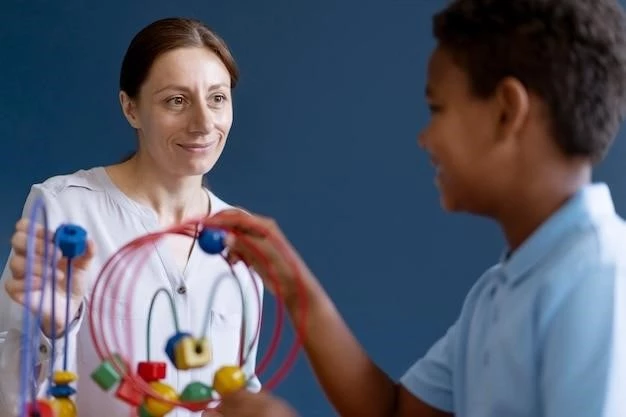Introduction to MMT Syndrome
The content regarding the Disease⁚ MMT syndrome states that it is a condition characterized by microcephaly, short stature, and digital anomalies. Various other names are used to describe this syndrome, highlighting its complex nature.
Definition and Overview
MMT syndrome, also known as microcephaly-mesobrachyphalangy-tracheoesophageal fistula syndrome, is a rare genetic disorder characterized by microcephaly, short stature, and digital anomalies. Individuals with this syndrome may experience various physical and developmental abnormalities, including tracheoesophageal fistula and mesobrachyphalangy. The complexity of MMT syndrome necessitates a multidisciplinary approach for diagnosis and management, highlighting the need for ongoing research and advancements in the field.
Causes and Risk Factors
Information regarding the specific causes and risk factors contributing to the development of MMT syndrome is currently under research and further investigation. Due to the rare and complex nature of the condition, genetic mutations and environmental triggers may play a role in its pathogenesis.
Genetic Mutations
The genetic mutations associated with MMT syndrome are currently being investigated to understand the underlying causes of this rare disorder. Research suggests that specific genetic alterations may contribute to the development of microcephaly, mesobrachyphalangy, and tracheoesophageal fistula in affected individuals. Further studies are needed to elucidate the complex genetic factors involved in the manifestation of MMT syndrome.
Environmental Triggers
While the exact environmental triggers of MMT syndrome remain under investigation, it is crucial to consider potential external factors that may interact with genetic predispositions to influence the development of this complex condition. Environmental elements such as exposure to toxins, infections, or prenatal influences could potentially play a role in the manifestation of MMT syndrome. Further research is needed to fully elucidate the impact of environmental factors on the development of this rare syndrome.
Symptoms and Clinical Presentation
The clinical presentation of MMT syndrome commonly includes microcephaly, short stature, and distinctive digital anomalies alongside potential complications such as tracheoesophageal fistula. Recognizing these symptoms is crucial for accurate diagnosis and appropriate management of individuals affected by this rare genetic disorder.
Microcephaly and Mesobrachyphalangy
One of the key features of MMT syndrome is microcephaly, a condition characterized by an abnormally small head size, often accompanied by intellectual disabilities. Additionally, mesobrachyphalangy refers to anomalies in the fingers and toes, including shortening or fusion of certain digits. These distinct physical manifestations play a crucial role in the clinical diagnosis and management of individuals with MMT syndrome.
Tracheoesophageal Fistula
Individuals affected by MMT syndrome may also present with tracheoesophageal fistula, a condition characterized by an abnormal connection between the trachea and the esophagus. This anomaly can lead to respiratory and feeding difficulties, requiring careful management and monitoring. Understanding the presence of tracheoesophageal fistula is essential in the comprehensive evaluation of individuals with MMT syndrome.
Diagnosis of MMT Syndrome
Diagnosing MMT syndrome involves a comprehensive evaluation that includes physical examinations and genetic testing. These diagnostic approaches help identify the characteristic symptoms such as microcephaly, mesobrachyphalangy, and tracheoesophageal fistula, aiding in confirming the presence of this rare genetic disorder.
Physical Examination
Physical examination plays a vital role in diagnosing MMT syndrome, encompassing evaluations of head circumference, musculoskeletal structure, and signs of tracheoesophageal fistula. Identifying characteristic physical features such as microcephaly, mesobrachyphalangy, and other anomalies is essential for the accurate diagnosis and appropriate management of individuals suspected to have MMT syndrome.
Genetic Testing
Genetic testing plays a pivotal role in the diagnosis of MMT syndrome, aiding in the identification of specific genetic mutations associated with the condition. By analyzing the individual’s genetic makeup, healthcare providers can confirm the presence of gene alterations linked to microcephaly, mesobrachyphalangy, and tracheoesophageal fistula, contributing to a comprehensive diagnostic approach for individuals suspected to have MMT syndrome.
Treatment Approaches
Various treatment approaches are employed for MMT syndrome, involving multidisciplinary management and therapeutic interventions tailored to address the specific symptoms and complications associated with this rare genetic disorder. Collaborative care and targeted therapies play a crucial role in enhancing the quality of life for individuals affected by MMT syndrome.
Multidisciplinary Management
The comprehensive management of MMT syndrome involves a multidisciplinary approach where healthcare professionals from various specialties collaborate to address the diverse needs of individuals with this rare genetic disorder. By integrating expertise from different fields such as genetics, neurology, and rehabilitation, individuals with MMT syndrome can receive holistic care tailored to their specific requirements, enhancing their overall well-being and quality of life.
Therapeutic Interventions
Therapeutic interventions for MMT syndrome encompass a tailored approach to managing the specific symptoms and complications associated with this genetic disorder. Strategies may include specialized therapies to address microcephaly, mesobrachyphalangy, and tracheoesophageal fistula, aiming to enhance the overall well-being and functional outcomes of individuals with MMT syndrome.

Prognosis and Complications
Individuals diagnosed with MMT syndrome may experience a range of complications, and the long-term prognosis can vary depending on the severity of symptoms and the effectiveness of management strategies. Understanding the potential associated health risks and considering the long-term outlook is essential in providing comprehensive care and support to individuals living with MMT syndrome.
Long-Term Outlook
The long-term outlook for individuals with MMT syndrome may vary based on the severity of symptoms and the efficacy of treatment interventions. Understanding the potential long-term impact of associated health risks and complications is vital in guiding healthcare providers to provide ongoing support and management strategies to enhance the overall quality of life for individuals living with MMT syndrome.
Associated Health Risks
Individuals diagnosed with MMT syndrome may face various associated health risks, including complications related to microcephaly, mesobrachyphalangy, and tracheoesophageal fistula. Understanding and addressing these potential health risks are essential in providing comprehensive care and improving the overall well-being of individuals living with MMT syndrome.

Research and Advancements
The field of MMT syndrome research is continuously evolving, with ongoing studies exploring the genetic underpinnings and therapeutic advancements. Researchers are investigating novel treatments and emerging therapies aimed at improving the management and outcomes for individuals affected by MMT syndrome. Stay updated on the current studies and developments in the understanding and treatment of this complex genetic disorder.
Current Studies on MMT Syndrome
Research on MMT syndrome is ongoing, with current studies focusing on unraveling the genetic basis and developing innovative treatments. Scientists are investigating the implications of specific genetic mutations and exploring potential therapeutic advancements. Stay informed about the latest research to contribute to the understanding and management of MMT syndrome.
Emerging Treatments
Researchers are exploring emerging treatments for MMT syndrome, focusing on innovative therapeutic strategies to address the unique challenges presented by this rare genetic condition. Advancements in treatment modalities aim to enhance outcomes and quality of life for individuals living with MMT syndrome. Stay informed about the latest developments in emerging treatments to support individuals affected by this complex syndrome.
Patient Support and Resources
Accessing patient support groups and educational materials can provide valuable assistance and information for individuals and families affected by MMT syndrome. Engaging with support networks can offer emotional support, guidance, and the opportunity to connect with others facing similar challenges. Utilizing educational materials can help enhance understanding of the condition and empower individuals to navigate their healthcare journey effectively.
Support Groups
Engaging with support groups specific to MMT syndrome can provide individuals and families with a valuable network for sharing experiences, gaining emotional support, and accessing resources. These groups offer a sense of community, understanding, and assistance in navigating the challenges associated with living with MMT syndrome. Additionally, participation in support groups can foster connections with others facing similar circumstances and provide a platform for exchanging information and coping strategies.
Educational Materials
Accessing educational materials related to MMT syndrome can offer valuable insights into the condition, treatment options, and management strategies. These resources provide in-depth information on the characteristics of MMT syndrome, potential complications, and available support services. Utilizing educational materials can empower individuals and caregivers to make informed decisions and actively participate in the care and well-being of those affected by MMT syndrome.
